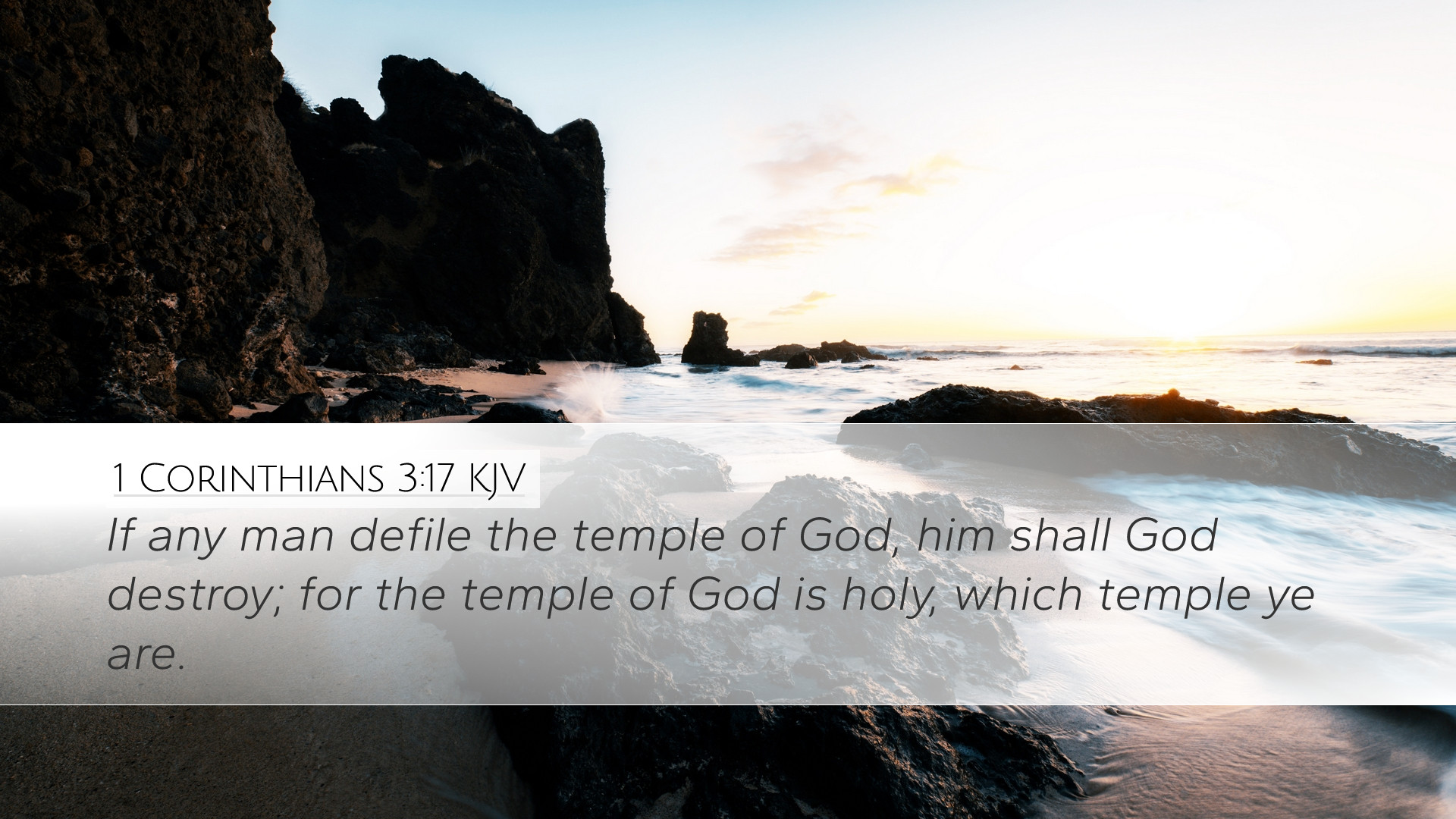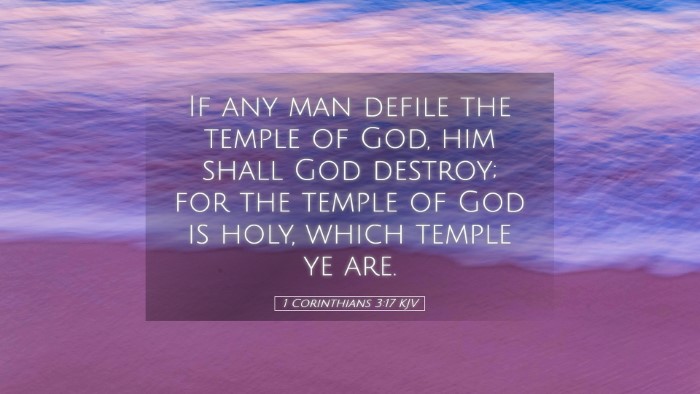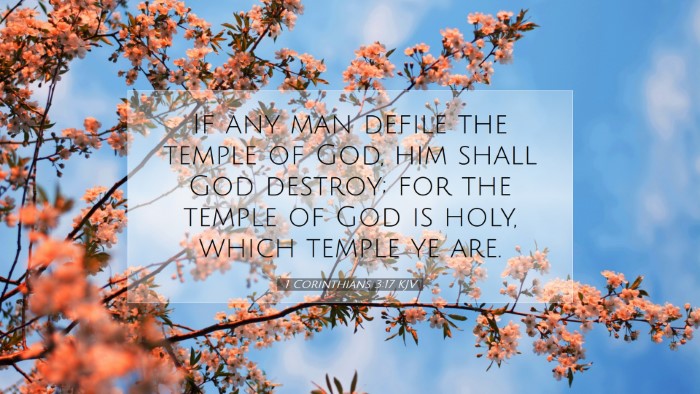Old Testament
Genesis Exodus Leviticus Numbers Deuteronomy Joshua Judges Ruth 1 Samuel 2 Samuel 1 Kings 2 Kings 1 Chronicles 2 Chronicles Ezra Nehemiah Esther Job Psalms Proverbs Ecclesiastes Song of Solomon Isaiah Jeremiah Lamentations Ezekiel Daniel Hosea Joel Amos Obadiah Jonah Micah Nahum Habakkuk Zephaniah Haggai Zechariah MalachiVerse
1 Corinthians 3:1 1 Corinthians 3:2 1 Corinthians 3:3 1 Corinthians 3:4 1 Corinthians 3:5 1 Corinthians 3:6 1 Corinthians 3:7 1 Corinthians 3:8 1 Corinthians 3:9 1 Corinthians 3:10 1 Corinthians 3:11 1 Corinthians 3:12 1 Corinthians 3:13 1 Corinthians 3:14 1 Corinthians 3:15 1 Corinthians 3:16 1 Corinthians 3:17 1 Corinthians 3:18 1 Corinthians 3:19 1 Corinthians 3:20 1 Corinthians 3:21 1 Corinthians 3:22 1 Corinthians 3:23

